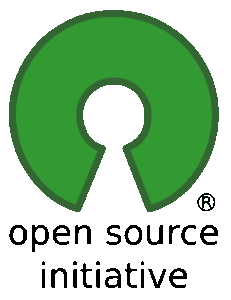The internet is an inexhaustible source of information, and people can find everything that comes to their mind there, from free ebooks and video games to sites for entertainment. Nowadays, there are more and more things we can use or download for free. But when we get the opportunity to use something for free, we simply do not take the time to think about whether that something is actually free. Freedom is a relative concept and basically nothing is gained for free.
However, open source software is free to download, often reuse and change, depending on the license. But, most people do not really understand what open source is and what open source programs are. Here is a detailed explanation of open source, its origins and what it means for the future.
The Origins of Open Source

There were multiple movements during the 70s and 80s which wanted to argue for free software, but not free as in free from cost. Most users complained and wanted software to be free for sharing and redistribution. The term free caused a lot of people to look at such similar movements with animosity, particularly the corporate world.
In 1998, at a conference in Palo Alto, the term open source was coined, in light of an announcement from Netscape that they will be releasing the source code for their browser, Navigator, known as Mozilla from that point onward. The statement was in January and the conference took place on April 7, 1998. It was at this point that the Open Source Initiative was created.
The definition of open source is software and code which is released by the copyright holder to the public under a license which allows the public to use, reuse, distribute and change the code in any way. Open source also implies open collaboration, depending on the project manager and owner, where capable users can also contribute to a project.
What Does Open Source Mean to Us?

Open source is basically an entire movement where we as users get free software, right? No, it is much more than that. Open source software implies that we as users can download and use software, but that we can also change and adapt it to our own needs, as we see fit. It also means that we can see the code that the software uses and that we can test it to see whether it contains any viruses or malign intent. Users who are in any way versed in programming or computer science can contribute to open source projects and help create more software.
Open source also means giving less power to the large corporations which want our money and our lives, in a way. Data is useful and open source software does not share any data unless we want it to.
What About the Future and Open Source?
Given the trajectory of most open source development, it is likely that we will have more open source software in the future. From people who are fed up with how things have been done so far (it only takes one person to start Linux) to teams of people who have a dream, a project of their own, open source is becoming much better. Even large companies have entire teams working on open source code, from libraries, drivers, software, layers of code which can be useful to everyone. With more people investing in open source, it means that consumers will have a choice about the software they want to use. Open source is a movement, but also a way of creating and sharing computer software so that everybody can benefit from it, use it, and contribute to it in any way that they want.

